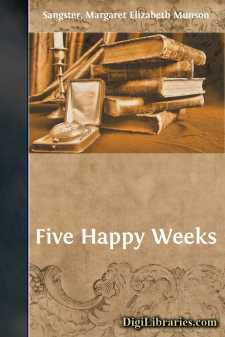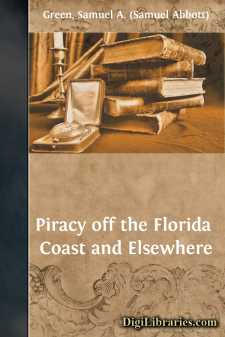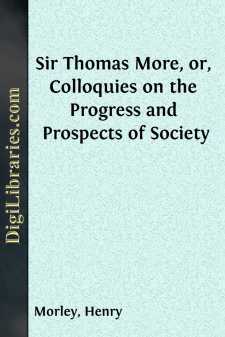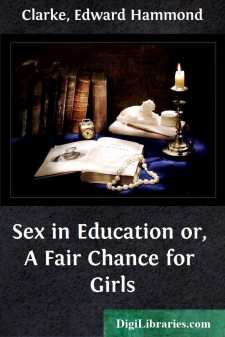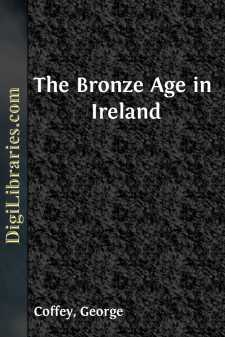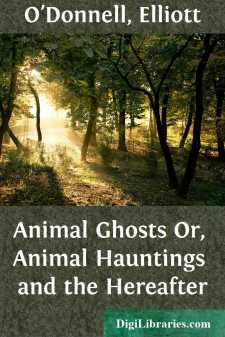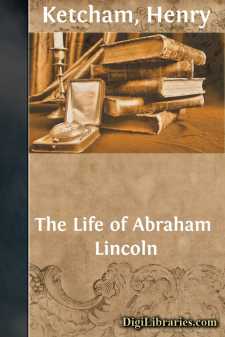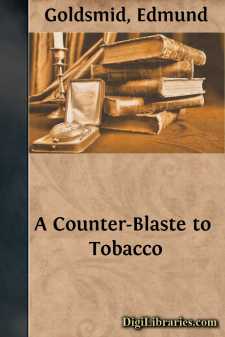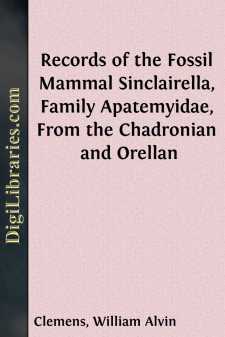Non-Classifiable
- Non-Classifiable 1768
Non-Classifiable Books
Sort by:
CHAPTER I. "GOOD-BY, MAMMA!" "I don't see how I can do such a thing," said mamma, shading her eyes with a hand so white and thin that you could almost see through it. "I never, never can go away, for five weeks, and leave these children; I should not have a moment's peace." "But, my darling," said papa, "the doctor says it is the only thing that will...
more...
INTRODUCTION I. THE BOOK AND ITS WRITER; SCOPE OF THE PRESENT EDITION The Laieikawai is a Hawaiian romance which recounts the wooing of a native chiefess of high rank and her final deification among the gods. The story was handed down orally from ancient times in the form of a kaao, a narrative rehearsed in prose interspersed with song, in which form old tales are still recited by Hawaiian...
more...
Ata stated meeting of theMassachusetts Historical Society, held in Boston on Thursday, February 9, 1911, Dr.Samuel A. Greenpresented the following paper:—Few persons of the present day are aware how extensively piracy prevailed two centuries ago. There was no part of the high seas that was free from the depredation of roving robbers. At times they threatened towns on the coast, and at others they...
more...
by:
Henry Morley
It was in 1824 that Robert Southey, then fifty years old, published “Sir Thomas More, or Colloquies on the Progress and Prospects of Society,” a book in two octavo volumes with plates illustrating lake scenery. There were later editions of the book in 1829, and in 1831, and there was an edition in one volume in 1837, at the beginning of the reign of Queen Victoria. These dialogues with a...
more...
SEX IN EDUCATION. PART I. INTRODUCTORY. "Is there any thing better in a State than that both women and men be rendered the very best? There is not."—Plato. It is idle to say that what is right for man is wrong for woman. Pure reason, abstract right and wrong, have nothing to do with sex: they neither recognize nor know it. They teach that what is right or wrong for man is equally right and...
more...
by:
George Coffey
CHAPTER I This book deals with the Bronze Age principally from the point of view of the implements and weapons in use in Ireland during that period. It is unnecessary to state that the materials for writing anything like a full account of the civilization or political organization during the Bronze Age do not exist; and even the ethnological affinities of the dominant race that inhabited Ireland during...
more...
CHAPTER I CATS In opening this volume on Animals and their associations with the unknown, I will commence with a case of hauntings in the Old Manor House, at Oxenby. My informant was a Mrs. Hartnoll, whom I can see in my mind's eye, as distinctly as if I were looking at her now. Hers was a personality that no lapse of time, nothing could efface; a personality that made itself felt on boys of all...
more...
by:
Henry Ketcham
CHAPTER I. THE WILD WEST. At the beginning of the twentieth century there is, strictly speaking, no frontier to the United States. At the beginning of the nineteenth century, the larger part of the country was frontier. In any portion of the country to-day, in the remotest villages and hamlets, on the enormous farms of the Dakotas or the vast ranches of California, one is certain to find some, if not...
more...
by:
Edmund Goldsmid
A COVNTER-BLASTE TO TOBACCO. That the manifolde abuses of this vile custome of Tobacco taking, may the better be espied, it is fit, that first you enter into consideration both of the first originall thereof, and likewise of the reasons of the first entry thereof into this Countrey. For certainely as such customes, that haue their first institution either from a godly, necessary, or honorable ground,...
more...
Description and comments.—P4 of KU no. 11210 has a large posterolingual cusp separated from the main cusp by a distinct groove, which deepens posteriorly. The posterolingual cusp is supported by the broad posterior root. P4 of the type specimen of Sinclairella dakotensis is described (Jepsen, 1934, p. 392) as having an oval outline at the base of the crown, and a small, posterolingual cusp. A chip of...
more...


